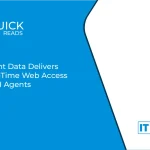エーザイ とそのグローバル・パートナー バイオジェン have filed a new drug application with Japan’s Pharmaceuticals and Medical Devices Agency seeking approval of a subcutaneous version, SC‑AI, of its anti‑amyloid LEQEMBI for the treatment of early Alzheimer’s disease. If approved, this version would permit patients to receive injections at home from the outset-a major shift from the existing intravenous regimen.
Data from the Phase 3 “Clarity AD” open-label extension supports the application. Weekly subcutaneous dosing of 500 mg, using two 250 mg injections, provides similar levels and results as IV dosing. It has a strong safety profile. Less than 2% of patients have reactions to systemic infusions.
If approved, LEQEMBI will change Alzheimer’s treatment in Japan. It will be the first anti-amyloid therapy that patients can take at home from the beginning. This will greatly enhance the experience for patients and caregivers.
こちらもお読みください: キンコーズとVeeva Japanがパートナーシップ契約を締結
皮下投与という選択肢が患者と医療にもたらすもの
皮下LEQEMBIは、標準的な静脈内投与法よりも重要な利点があるかもしれません:
利便性と快適性: Patients can give themselves the injection at home. They don’t need to visit the hospital every two weeks.
使用する医療資源の減少:SC-AIは治療を簡素化します。輸液の前準備を省き、看護師の監視を削減し、病院の手順を合理化します。.
アクセスの改善:在宅管理は、移動に問題がある患者さんや、輸液クリニックへのアクセスに問題がある患者さんなど、より多くの患者さんが利用できるようになります。.
Experts argue that this would reduce barriers to Alzheimer’s care in Japan-a fact that, given the demographic context, is particularly important.
製薬業界にとどまらない広範な影響:日本における技術、データ、ヘルスケアサービスの意味するもの
The announcement highlights pharmaceutical development. It could also affect Japan’s tech industry, data infrastructure, and healthcare services:
デジタルヘルス&リモートケアソリューションへの刺激
在宅注射によるアルツハイマー治療が増加。これにより、デジタルヘルスツールのニーズが高まります。遠隔モニタリングシステム、遠隔医療プラットフォーム、ケアマネジメントアプリなどがこれにあたります。ハイテク企業は新たな成長機会を見出すでしょう。特に、高齢者ケア、遠隔モニタリング、患者データ管理で顕著です。.
Data & AI-driven Alzheimer’s Care
自宅や診療所での治療が増えています。そのため、データを収集、管理、分析するためのより良い方法が必要です。このデータは、患者が治療計画にどれだけ従っているかを追跡するものです。また、副作用のモニタリングも行います。ここでは患者からのフィードバックが鍵となるでしょう。AIベースの医療データ・プラットフォーム、電子カルテ・プロバイダ、AI診断ツールは、おそらく大きく成長するでしょう。.
インフラと供給-チェーン・インパクト
SCオートインジェクターへのシフトは、病院外での保管、流通、投与が可能なため、医療用品の管理方法を変える可能性があり、在宅治療が一般的になるにつれて、物流、コールドチェーン管理、医療機器製造、医薬品サプライチェーンソフトウェアに携わる企業の需要が高まる可能性があります。.
高齢者介護サービスとインシュアテックに弾み
Our country leads the world in Alzheimer’s care innovation due to its high graying population rates. Caring for patients at home may soon be common. This shift will increase the need for full home-care services, remote caregiver support, and specialized health insurance for long-term neurological care. Insurtech firms and caregiving tech providers are ready to tap into this expanding market.
クロス-産業界の協力が不可欠に
Realizing these benefits will take collaboration among healthcare providers, technology companies, data platform vendors, regulatory bodies, and insurers. The LEQEMBI SC push may accelerate such cross-industry collaboration in Japan and help drive a more integrated “healthcare + technology” ecosystem.
課題と考察
Regulatory review risks: Approval isn’t guaranteed. The PMDA will look at safety, efficacy, and how well SC administration works in real life.
アドヒアランスとモニタリング:在宅投与は、患者や介護者に責任を負わせます。アドヒアランスを助け、副作用を管理するサポートシステムが必要になるかもしれません。.
データのプライバシーとセキュリティ:在宅医療が拡大する中、患者データの安全な取り扱いは不可欠です。特に、デジタルヘルスプラットフォームや遠隔モニタリングの台頭が顕著です。.
インフラとトレーニングには、医療機器のサプライチェーン、在宅ケアのロジスティクス、介護者のトレーニング、医療廃棄物の管理などが含まれます。.
転機となる可能性がある理由
Japan can boost access to Alzheimer’s treatment by approving the SC-AI version of LEQEMBI. This breakthrough makes home care easier. It cuts down on burdens for patients and caregivers. Self-administration at home reduces stress, improves quality of life, and makes long-term treatment easier. This innovation helps businesses integrate healthcare and technology. It combines medicine with digital tools in Japan’s aging society.
そのため、この開発は一般的なイノベーションの触媒として機能し、結果としてデジタルヘルスプラットフォーム、遠隔ケア、AIによるモニタリング、支援インフラの成長を促進する可能性があります。.








